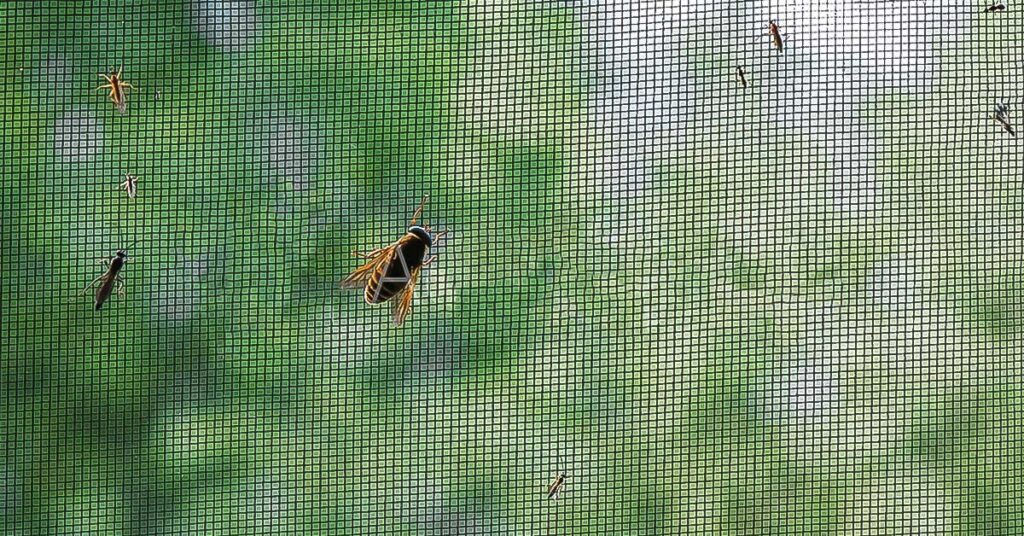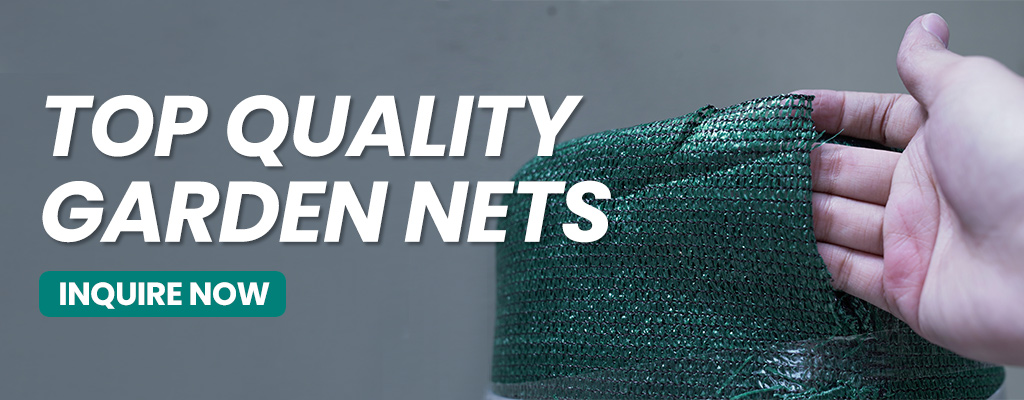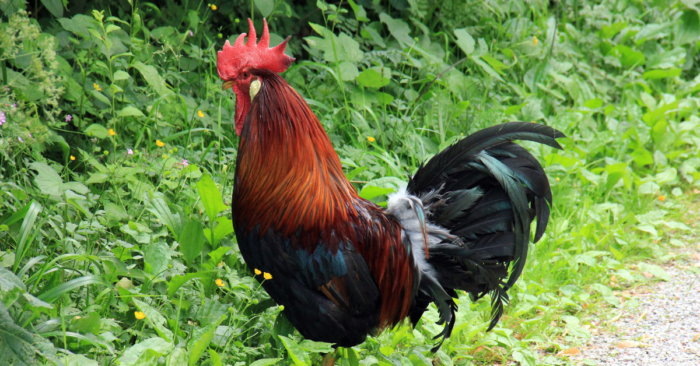Like most of us, plants need to get used to the changing seasons too and one of the most challenging times of the year comes in during summer when the sun is at its peak and the heat can oftentimes be intolerable especially in a tropical country like ours.
One of the best ways to regulate the temperature in your gardens and greenhouses is by using garden netting which comes in a variety of types for specific uses. You have your mini hoop tunnels, your roe covers, and your portable garden net frames to name a few. Knowing how each can help you increase your production and protect your plants from other damaging external factors is one of the most important aspects of being a plant raiser.
First, let’s get to know why you should use garden netting for your plants and the many benefits they can give you in general.
They help control temperatures and your plants’ environment


As mentioned (and in a rather ominous Stark-like tone), ‘summer is coming’– and you will have to protect your sensitive garden plants from record-high temperatures soon. Excessive direct heat from the sun can quickly dehydrate your plants and make them wither and die out faster than you think. That’s why you’ll need to install the proper garden netting to control bad weather and extreme temperatures for your plants’ sake during hotter days.
Garden nets serve as protective covers even for your typical vegetable crops and shrubs that can withstand heat waves. Setting up shade cloths or protective row covers can block off a great degree of harmful sunlight that your plants will absorb without reducing the quality of aeration that they need.
Make sure that you set up your garden nets in a way that wind won’t knock them off and fall directly to your plants. Use garden netting with around 50% shade factor for your more sensitive plants like Coral Bells or Primroses, and crop species like tomatoes and cucumber, and 30% shade for your perennial sun-loving plants such as your Blanket Flowers, Black-eyed Susans, or Sedums, as well as crops like squashes and beans.
For sun-hating plants with shallow surface roots that are quick to dry up with the soil, it’s always best to add reflective mulch so your plants can have enough moisture throughout the day.
Garden nets protect your plants from the cold too


Once summer is over, the next weather-worry season every plantito and plantita has to deal with are the rainy and cold seasons. Ornamentals usually take the brunt of the damage from downpours and colder weather so bring your potted plants under good garden nettings that are made from polyethylene sheets such as those produced by one of the most trusted garden net providers in the country Philippine Ranging Nets. These shade nettings will serve as windbreakers when there are gusts of strong winds and hard rainfall especially for taller plants that are prone to more damage.
Once the sun shines again, be sure to remove your shade nettings to give your plants some much-needed sunlight then put them back again when the clouds start to turn dark.
In colder temperatures, frost can also occur and wreak havoc on your sensitive ornamentals that are in their early to late growth stages. Use a garden fleece to drape over the plants and create another insulating layer along with your shade netting. Check your fleece for UV standards and weight to ensure its quality against the cold.
They serve as good protection from pests


Taking care of your plants (whether they’re ornamentals or crops), using garden nets is no rocket science. Aside from protecting them from harsh weather and heat, while keeping them hydrated and supplied with proper aeration, they also keep off those pesky bugs that feed on your plants.
If there’s one thing that’s certain when you grow some veggies in your garden, you are unmindfully inviting pests to a feast, including animal pests like chickens, dogs, or birds. Placing some A-grade garden netting will prevent you from waking up to ravaged plants.
While some gardeners resort to more extreme defenses such as electric fences or traps, garden nets are equally effective in warding off pests and wayward animals that roam your garden as long as they have proper mesh size. Items sold by the Philippine Ranging Nets have garden nets that not only vary in shade ranges (from 30% to 80%) but in size as well with 45 x 4 feet or 90 x 4 feet nets available.
Now, while most garden nets won’t keep those sneaky snails and slugs away from your plants, you might have to use some organic pest control products that are safe for your plants and soil. You’ll also want to pull out any infected plants away from healthy ones as they will further attract pests and water your plants earlier in the day because wet foliages are like all-you-can eat-buffets for insects and fungi.
You can stretch out the growing season for longer yields


Garden nets can also help you stretch out the growing phase of your plants way into the following seasons. For vegetable growers in cold climates, there’s barely enough time to ripen tomatoes or melons while the dry season can stun plant growth due to the intense heat.
Fortunately, some green thumb experts have discovered great techniques with the use of shade nets to extend the growing season to up to two to six months regardless of the weather outside.
Garden nets help in reducing your plants and crops’ exposure to strong winds that can use up a lot of their energy, without depriving them of good aeration. Don’t worry about stunting your seedlings’ growth as they can adapt very well under garden nets. Your garden netting will also help warm up the soil by a few degrees to make your plants’ environment more ideal for growth.
Plants in a garden netting shelter setting gain a lot of benefits that add up to extend their growth for most of the year including controlled temperatures and aeration, protection from the wind, frost, and insects. Your garden nets’ fabric also lets excess heat escape while allowing rainwater to pass through. With a good garden net in place, all you have to do is regularly check if your plants are having enough supply of water weekly and weed out damaged ones to keep the healthy plants in good shape for growth!
You won’t have to shell out more money


Unless you’re a serious plant grower with acres of agricultural land to tend to, you won’t need to spend more money to protect your ornamentals or crops. You won’t need electric fences, or high-tech animal traps, or monthly supplies of organic pest control chemicals as a good garden netting will do.
However, avoid purchasing sub-par garden netting that won’t do the job and break down easily nor resort to homemade ones DIY’d out of fishnets and some raggedy cloth that ties them up together. You’ll just end up breaking the bank rather than saving money.
Quality garden nets such as those you can buy from the Philippine Ranging Nets are more cost-efficient because they are durable and can withstand any strenuous weather conditions for a long time. You not only save more money for better harvests, but you can also save money on maintenance while enjoying some fresh garden-to-table produce while counting your savings.
Lastly, they are so easy to set up!


Last but not the least, we encourage the use of garden netting for your ornamentals and vegetable crops because of how easy they are to install and maintain. You can keep them sturdy with several wire, metal, sticks, and PVC hoops that will keep them sturdy and strong against heavy winds. Plus it won’t take you hours to adjust them when a storm is coming or during hotter days!
Of course, you’d have to consider what type of plants you’re growing and your actual garden space. For better anchors, try using steel pipes that are three inches in diameter as posts for your garden nets then determine which mesh size is best for your plants.
Learn more about garden netting design and other awesome hacks here.


To know more about garden nets or order the best ones in the market today, visit Philippine Ranging Nets or send them a message via [email protected] or by calling +63977 007 0228.




